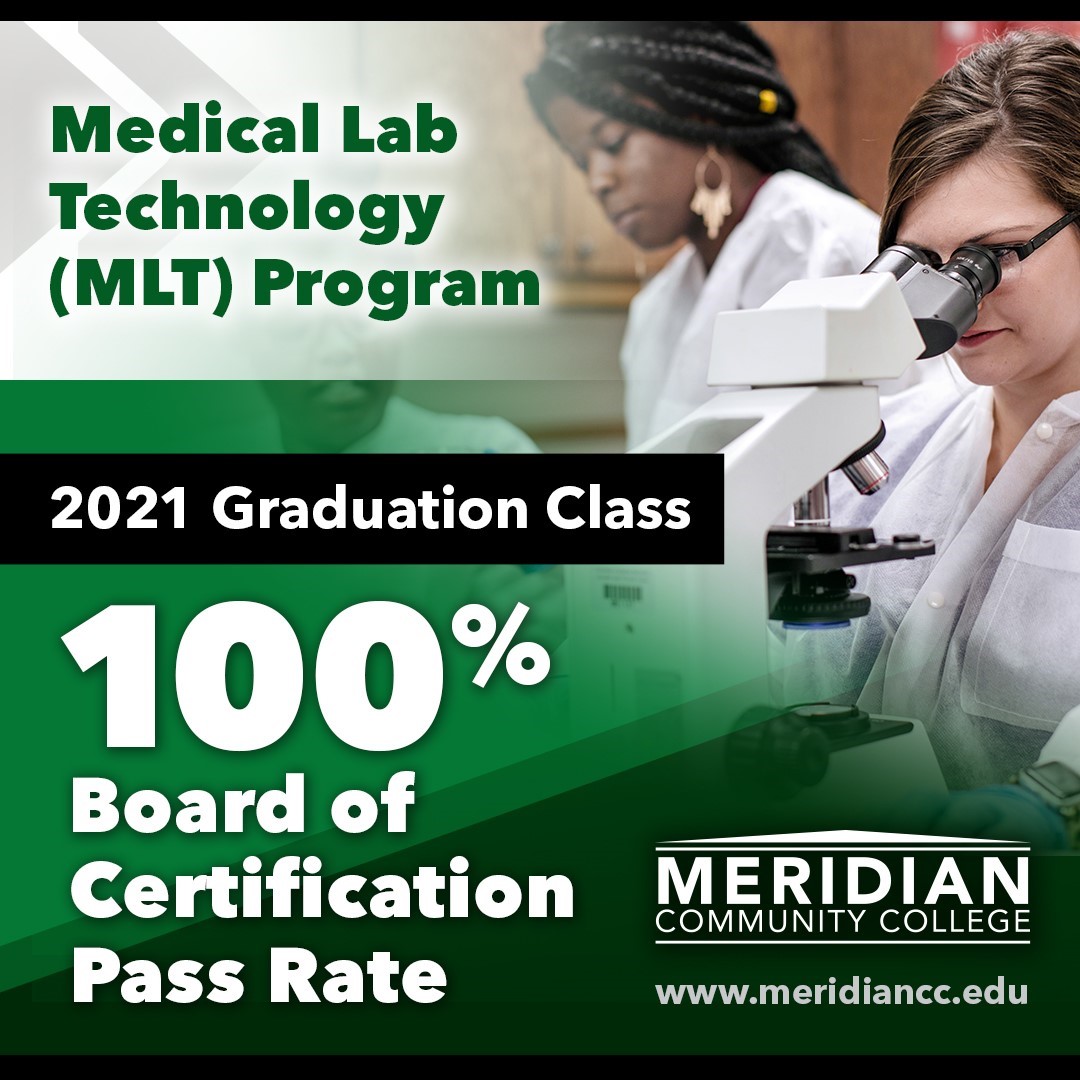MCC’s Medical Lab Program grads post perfect pass rate on national exam
 Meridian Community College’s Medical Laboratory Technology (MLT) Program Class of 2021 graduates successfully passed their national licensure exam, the ASCP
Board of Certification, on their first attempt for a 100 percent pass rate.
Meridian Community College’s Medical Laboratory Technology (MLT) Program Class of 2021 graduates successfully passed their national licensure exam, the ASCP
Board of Certification, on their first attempt for a 100 percent pass rate.
For the last three years, this MCC career and technical education program has earned this honor. In addition, the program has also posted a 100 percent job placement rate for graduates for the last 10 years.
“Students work extremely hard during the two-year program in order that they are prepared for the ASCP examination as well as the workforce. Students participate in both didactic and clinical practicum aspects of the program during the two years they are in the program,” said Sheila Johnson, program coordinator and instructor.
Upon successful completion of the program, MLT students earn an associate of applied science (AAS) degree upon graduation.
Johnson explained that students in the 2021 graduating class all took the ASCP examination within two weeks of graduation, and they all had jobs before graduation from the program. “Passing the ASCP examination, which is a national examination, ensures that graduates are able to obtain a job in the field of medical laboratory technology anywhere within the US. Graduation from the MLT program as well as passing the national board examination represents the dedication and hard work these students have put into advancing their education,” she added.
Johnson said she and her colleague Krystal Holifield, MLT program instructor and clinical coordinator, are exceptionally proud of the class of 2021 and all former graduates of the MLT program who have graduated and passed the ASCP examination.
Graduates of the MLT program can work in any area of a clinical laboratory or they may use their degree to further their education as a Medical Laboratory Scientist (MLS). Graduates may work in pathology laboratories, hospital laboratories, clinic laboratories, emergency department laboratories, blood service laboratories, reference laboratories, or veterinarian laboratories. They may also work as field service representatives (individuals who work on lab instrumentation), quality control specialists, or point of care specialists.
Opportunities to become a laboratory supervisor or laboratory manager are also potential career advances for individuals with an MLT degree.

